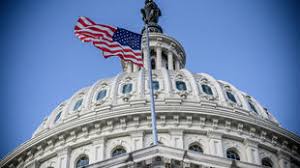Every year, the US rejects thousands of kidneys from deceased older donors, the majority of which would have been used in France, according to a study published Monday that described the organs as a wasted resource that could save lives.
The analysis, published in JAMA Internal Medicine, found that French transplant centers would have transplanted more than 60 percent — about 17,500 kidneys — of the nearly 28,000 deceased donor kidneys discarded in the United States between 2004 and 2014.
Five thousand Americans die each year while awaiting a kidney transplant, and there are about 90,000 currently on waiting lists.
The average age for the average donor was also striking: 39 in the US compared to 56 in France.
“They are almost 20 years older on average, it’s huge,” Alexandre Loupy, the paper’s lead author told reporters.
France addressed its own kidney shortage by steadily raising the age threshold for donors for older recipients.
Even though there is a higher risk of failure from older donors, France found that patients receiving these organs lived longer and with a higher quality of life compared to those who remained on dialysis, said Loupy.
The US, by contrast, has remained more cautious: discarding about 18 percent of the nearly 160,000 deceased-donor kidneys over the time frame, about twice as high as the discard rate in France.
According to Loupy, budgetary constraints and performance indicators held US surgeons back from carrying out transplants deemed to be higher risk. “They throw about 3,500 kidneys in the bin every year, which is about the same as the total number we transplant in France.”
“A 70-year-old patient does not need a graft that works for 30 years,” says Loupy, who hopes the study will lead the US to soften its policy.
In July, the administration of US President Donald Trump signed an executive order to improve kidney care and double the number of transplants by 2030.




























 WhatsApp us
WhatsApp us
Pingback: 카지노
Pingback: guaranteed ppc
Pingback: https://theplumbernearme.com.au/sunshine-coast/cambroon/
Pingback: british dragon gear dianabol
Pingback: diet pills
Pingback: dang ky 188bet
Pingback: buy weed online
Pingback: 먹튀검증
Pingback: click here
Pingback: Bitcoin Evolution Review
Pingback: bitcoin evolution is it real
Pingback: how to access onion addresses
Pingback: Earn Fast Cash Now
Pingback: Quality Engineering
Pingback: Devops
Pingback: zie bericht
Pingback: Smoke Testing
Pingback: 3d printing
Pingback: 배트맨토토
Pingback: Prostate Help
Pingback: microsoft exchange online plan 3
Pingback: 다시보기
Pingback: Bilad Alrafidain University |Bilad |Alrafidain |college students
Pingback: Buy Adderall Online
Pingback: buy dilaudid online from us we supply the original brand dilaudid 8mg. buy dilaudid tablets overnight shipping without no prescription cheap
Pingback: 카지노사이트
Pingback: sbo
Pingback: read this article
Pingback: maxbet
Pingback: สล็อตวอเลท ไม่มีขั้นต่ำ
Pingback: snuscore de
Pingback: สินเชื่อส่วนบุคคล อนุมัติง่ายที่สุด
Pingback: limanbet giriş
Pingback: 토토휴게소
Pingback: 토토포켓몬